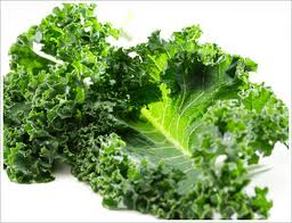|
For those of you who have been to my retreats, you have probably gathered that although I cherish and prescribe a healthy diet and life-style, I'm not an ardent fan of nutrition by numbers - e.g. how many grams of protein you need on a daily basis etc. To me, measuring nutrition and at the same time, being mindful and feeling a connection with what you eat on an energetic and heart level don't really go hand in hand - but perhaps that's just me... and I'm sure there are people out there who manage to do both... To me, one's a left brain activity and the other a right brain activity, and being a typical Pisces as well as a lover of blissful meditation, I prefer the floaty, dreamy sensation of tasting the sunshine in my kale rather than storing the nutritional facts about it in the filing archives of my brain... (even though it is very impressive: one cup of kale contains 36 calories, 5 grams of fiber, 15% of the daily requirement of calcium and vitamin B6 (pyridoxine), 40% of magnesium, 180% of vitamin A, 200% of vitamin C, and 1 020% of vitamin K. It is also a good source of minerals copper, potassium, iron, manganese, and phosphorus!!!) So, although I don't talk very much on the theory of nutrition, but tend to keep it more practical, there are instances when terminology raises its head and needs some explanation... (e.g. fats - saturated-, unsaturated,- trans-! See my blog- http://www.yogadetoxretreats.co.uk/2/post/2011/10/fats-the-good-the-bad-and-the-trans-fats.html). One such term is 'antioxidant'... and a lot of people aren't sure what an antioxidant is or does..., and as it's a rainy and chilly day outside (in May in Portugal?!), I thought I'd share some theory with you... Antioxidants are vitamins, minerals, and other nutrients that protect and repair cells from damage caused by free radicals. A free radical is any atom or molecule that has a single unpaired electron in its outer shell. Now, electrons prefer to travel in pairs. Occasionally, though, an atom or a group of atoms (molecule) loses one electron. When this happens, the atom or molecule becomes a free radical. Like the human body in general, atoms prefer stability. An atom that's missing an electron will thus steal one from the nearest stable atom - turning that atom into a free radical. As you can probably imagine, this is the start of a chain reaction... Free radicals are created as a result of the process of oxidation - when a substance combines with oxygen. This is part of the body's normal metabolism, which tends to increase with age. Free radicals can also be created by the immune system to help destroy bacteria and viruses during an infection. And they can form as a result of exposure to certain chemicals, environmental toxins like pollution, radiation, and cigarette smoke. Under normal circumstances the body can easily rid itself of free radicals, but problems can occur if the number of free radicals increases beyond the body's ability to neutralize or destroy them. So, when a cell / molecule becomes a free radicle, it becomes highly reactive (except a few which are not chemically reactive, such as melanin) and can lead to free radical damage (often closely associated with oxidative damage). The cell membrane (the outer covering of the cell) becomes either too vulnerable or too resistant to outside influences. It can also damage the cell's DNA, causing the cell to malfunction or reproduce abnormally. The damage caused by free radicals plays a part in a number of chronic diseases in people who eat processed foods, non-organic produce, meat and dairy to include hardening of the arteries, cancer, and arthritis. Free radicals can also interfere with your immune system. So, fighting off damage with antioxidants helps keep your immune system strong, making you better able to ward off colds, flu, and other infections. Antioxidants are reducing agents that limit oxidative damage to biological structures by passivating them from free radicals. Okay, time to take another look at kale... Kale’s health benefits are primarily linked to the high concentration and excellent source of antioxidants - vitamins A, C, and K - and sulphur-containing phytonutrients. Carotenoids and flavonoids are the specific types of antioxidants associated with many of the anti-cancer health benefits. Kale is also rich in the eye-health promoting lutein and zeaxanthin compounds. Beyond antioxidants, the fiber content of cruciferous kale binds bile acids and helps lower blood cholesterol levels and reduce the risk of heart disease, especially when kale is cooked instead of raw. Hippocrates said 100's of years ago, "Let your food be your medicine and your medicine be your food." These words are just as true today as they were in 470 BC!! I advocate a diet of fresh organic fruits, vegetables, whole grains, beans and nuts. Eat what is local, what is fresh and in season and is available in your community. If kale isn't available, eat mustard greens or spinach. If berries are not available or too expensive, then eat apples and oranges. By eating locally organic food from local farmers, you are not only benefiting from fresh produce but you are also participating within your community by supporting hard working neighbors and businesses. Adding more fruit and vegetables of any kind to your diet will improve your health. But some foods are higher in antioxidants than others. The three major antioxidant vitamins are beta-carotene, vitamin C, and vitamin E. You’ll find them in colorful fruits and vegetables – especially those with purple, blue, red, orange, and yellow hues. To get the biggest benefits of antioxidants, eat these foods raw or lightly steamed. Beta-carotene and other carotenoids: Apricots, asparagus, beets, broccoli, cantaloupe, carrots, corn, green peppers, kale, mangoes, turnip and collard greens, nectarines, peaches, pink grapefruit, pumpkin, squash, spinach, sweet potato, tangerines, tomatoes, and watermelon. Vitamin C: Berries, broccoli, Brussels sprouts, cantaloupe, cauliflower, grapefruit, honeydew, kale, kiwi, mangoes, nectarines, orange, papaya, red, green or yellow peppers, snow peas, sweet potato, strawberries, and tomatoes. Vitamin E: Broccoli, carrots, chard, mustard and turnip greens, mangoes, nuts, papaya, pumpkin, red peppers, spinach, and sunflower seeds. These foods are the "superfoods" more than the synthetically created powders and pills which make a lot of money for some multinational corporations / individuals but don't deliver the nutritional goods to the same extent to the individuals - nor to your own community. Health, happiness, peace, kindness to your fellow man, compassion to all animals and respect and awareness for our environment is all part of achieving wholeness and wellness...... :)
4 Comments
On my yoga detox retreats, I often give a few suggestions on how to eat more healthily... and one important aspect to this is that of FATS.
We all need some fat in our diet. But eating too much fat makes us more likely to become overweight. What’s more, too much of a particular kind of fat – saturated fat – can raise our cholesterol, which increases the risk of heart disease. That’s why it’s important to cut down on fat, and choose foods that contain unsaturated fat. Eating too much fat can make us more likely to put on weight, because foods that are high in fat are also high in energy (calories). Being overweight raises our risk of serious health problems, such as:
Types of fat There are two main types of fat found in food: saturated and unsaturated. Saturated and unsaturated fat contain the same amount of calories. But as part of a healthy diet, we should try to cut down on food that is high in saturated fat, and instead eat foods that are rich in unsaturated fat. |
Lauren Manning
Globe-trotting nomad, yogini, holistic therapist, cat lover who, after 20 years of traveling the world, has finally laid down roots in the magical mountains of Monchique - Portugal's 'upper Algarve'. CURRENT MOON Archives
August 2017
Categories
All
|


 RSS Feed
RSS Feed